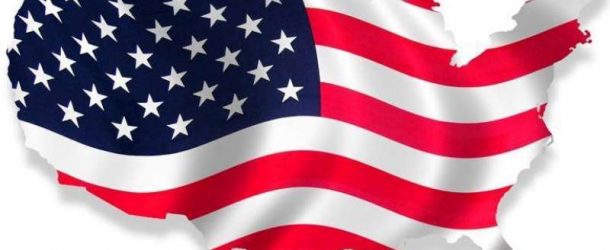One of the most interesting discussion topics in Political Theory is the difference between nationalism and patriotism. While some liberal and Marxist critics equate nationalism with patriotism and find no significant difference between these two waves, some others praise patriotism as a more humanistic and liberal approach that is different from nationalism which is based on the feelings of superiority. This article aims to analyze this controversy in the light of some articles.
As a dictionary definition, patriotism means “devoted love, support, and defense of one’s country; national loyalty”[1]. Nationalism on the other hand means “spirit or aspirations common to the whole of a nation” and “the policy or doctrine of asserting the interests of one’s own nation viewed as separate from the interests of other nations or the common interests of all nations”.[2] Looking at these definitions, one can claim that patriotism is a feeling whereas nationalism is a political doctrine based on the supremacy of national interests and feelings of superiority towards other nations in its excessive form.

Robert Jensen
Robert Jensen[3], in his article “Goodbye to Patriotism”[4] criticizes the negative effects of American patriotism which became especially influential after the September 11 (9/11) terrorist attacks. Jensen, a Professor of journalism at the University of Texas, claims that considering American political life and foreign policy, patriotism can be blamed for the conflicts and wars. Jensen begins his article by stating that so-called American patriotism has become extremely powerful after the 9/11 attacks and those who disagree with this trend are often labeled as “communist”, “traitor” or “anti-American”. Jensen uses the dictionary meaning of patriotism as the “love and loyal or zealous support of one’s own country”. He tries to show that this love or loyal support to one’s own country can easily turn into militarism and nationalism. In his view, patriotism after the 9/11 attacks was used in USA for mobilizing support for the American military operation towards Afghanistan and the invasion of Iraq. Jensen also complains about people who advise him that he could normally have these views and feelings, but at the moment he should not state this because the country is in a war. In Jensen’s view, these people believe in democracy and human rights, but they think that these ideals and norms belong solely to American nation. However, Jensen thinks that a true democrat should care for the well-being of all humans, not just Americans and other approaches are in fact “barbaric”. He later begins to criticize American foreign policy which led to the death of hundred thousands of people in the 20th century. He suggests that “any use of the concept of patriotism is bound to be chauvinistic at some level” and this will lead to the rise of racism and xenophobia. Jensen finally asserts that we should abandon patriotism and do not try to distinguish patriotism from nationalism or chauvinism if we really want peace for our country and for the world.
Jensen’s ideas are strong and well-built, but his starting point is open to criticism. Jensen makes the dictionary definition of the term “patriotism” and builds all his arguments on this definition. However, beyond its dictionary definition, patriotism in my understanding has a positive meaning and it refers to a person’s love for his/her own country which is clearly different from nationalism that has a pejorative meaning. Patriotism does not force and automatically require a citizen not to criticize his/her own country’s policies and support wars. In nationalism or chauvinism on the other hand, the feeling of love for the country turns into a strict policy of exclusion for some groups (minorities etc.) and an offensive foreign policy approach towards other countries. Thus, as far as I am concerned, this is the critical difference between patriotism and nationalism and they are very different from each other. Nationalism includes aggression and a claim for superiority whereas patriotism is just the feeling of love for the country. It is also clear that what Jensen uses as patriotism is more like nationalism or even like chauvinism. Although I am aware of the fact that patriotism could be easily used in popularizing nationalist and militarist feelings by media and states (like far right movements and leaders are doing it perfectly well in Western countries these days), I still think that a defensive and not aggressive love for one’s own country which does not curtain this person’s objectivity in political matters, should not be equal to ethnic nationalism or chauvinism that are based on racial superiority claims and often leads to wars and imperialism.
Finally, from my point of view, patriotism is a normal and even beneficial feeling since it is based on the protection of the rights of its citizens and it is rather defensive. However, aggressive nationalism or chauvinism is totally different from patriotism and it should be condemned. The important for states is to produce patriotism for their citizens in order to work and live in harmony without causing the enmity perception of other states and nations by producing nationalism or chauvinism.
Assist. Prof. Dr. Ozan ORMECI
BIBLIOGRAPHY
- Dictionary.com, Date of Accession: 01.05.2017 from http://www.dictionary.com/.
- Jensen, Robert, “Goodbye to Patriotism”, A talk delivered to the Peace Action National Congress on November 10, 2001, Date of Accession: 01.05.2017 from http://www.counterpunch.org/2001/11/12/goodbye-to-patriotism/.
- “Robert Jensen”, Wikipedia, Date of Accession: 01.05.2017 from https://en.wikipedia.org/wiki/Robert_Jensen.
[1] http://www.dictionary.com/browse/patriotism.
[2] http://www.dictionary.com/browse/nationalism.
[3] https://en.wikipedia.org/wiki/Robert_Jensen.
[4] http://www.counterpunch.org/2001/11/12/goodbye-to-patriotism/.
























































